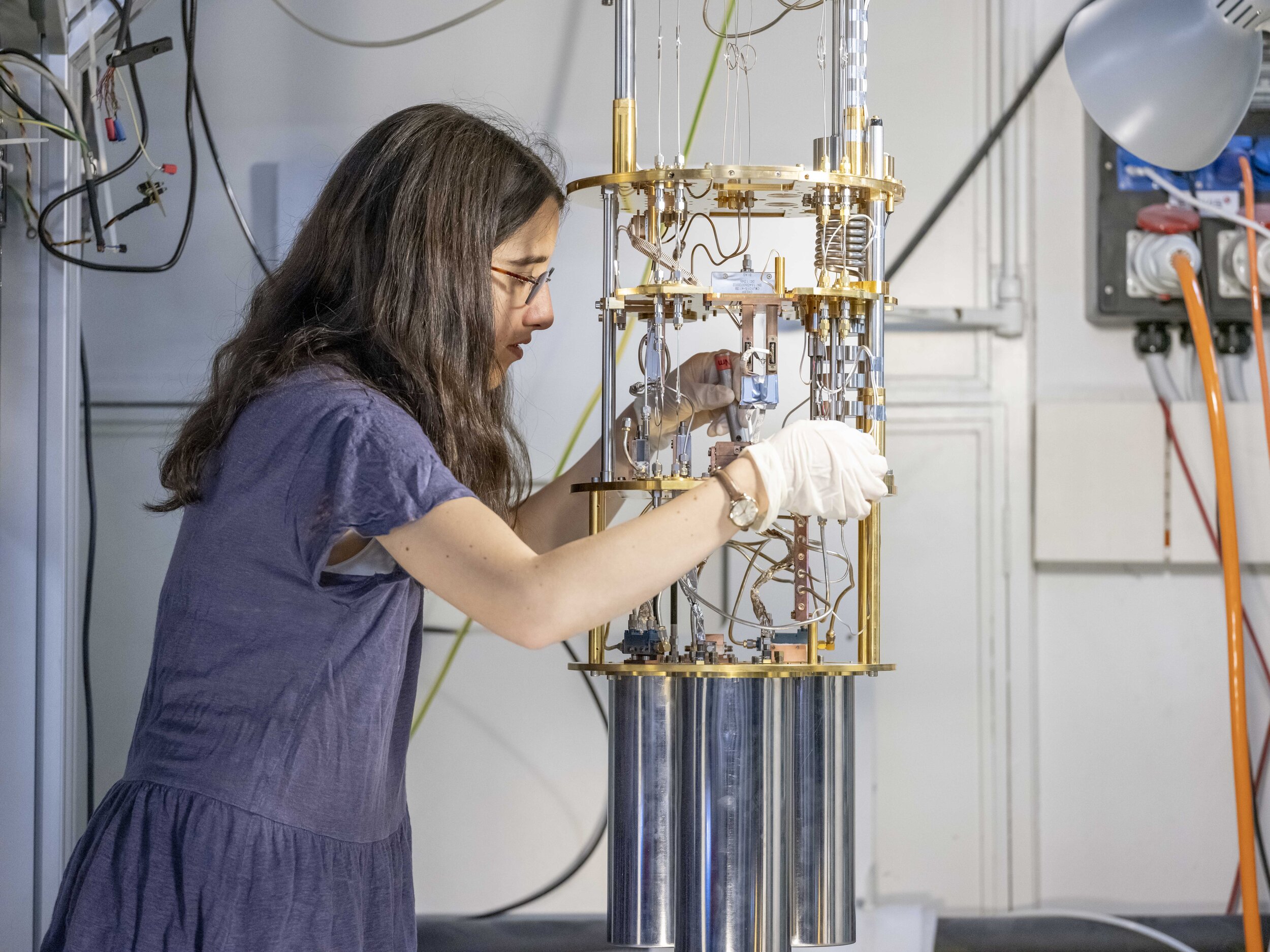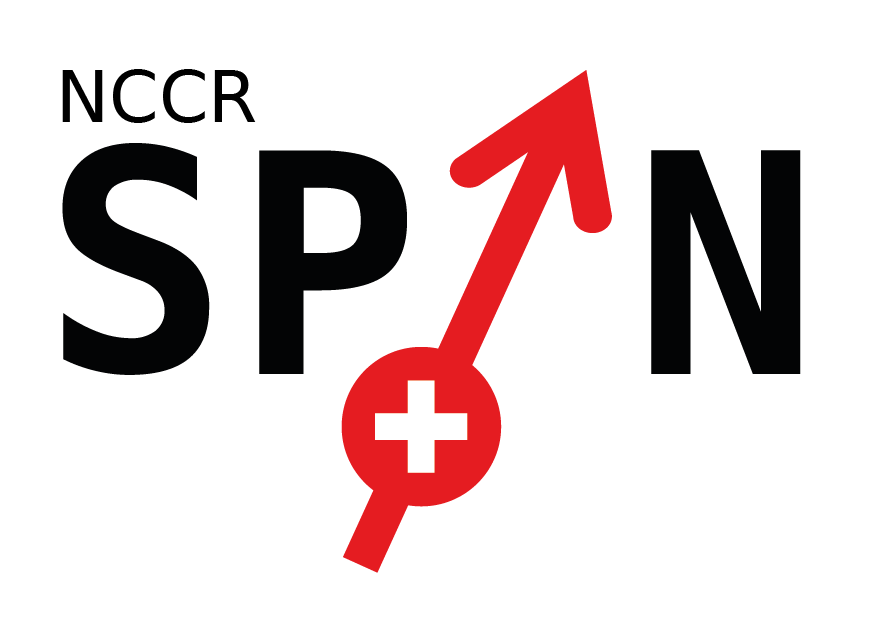
February 11, 2021
International Day of Women and Girls in Science
February 11 is International Day of Women and Girls in Science: Meet five women and role models who work in the SPIN network and learn why they chose a career in science, what they love about their work, which obstacles women in science face to this day and which joint efforts of men and women alike are necessary for a future with equality in science.
Anna Fontcuberta i Morral
Full Professor , Laboratory of Semiconductor Materials at EPFL
I started studying physics because I found a lot of pleasure with it. I loved to not have to memorize things, to just have to understand. At the end of my masters I got a glimpse how much pleasure it is to discover new things and to research, so I did my PhD. During my PhD I realized how much of a privilege it is to use your brain as a job and to be paid for that. This made me continue and try a career in science.
My research is about novel materials in novel nanostructures for the next generations of both quantum science and energy conversion. I like to think about new structures and new materials to really advance what one can achieve technically. And I love to collaborate both with engineers and physicists to achieve this. My dream is that the materials that I discover really make a contribution to global change and global climate change. We are currently studying new materials that are very cheap and - we hope - which will make a contribution to enable these materials to be used as solar cell material. I really hope this will be a major contribution in ten to fifteen years.
I love to contribute with my curiosity and to be driven by that on a daily basis. I also love to contribute to the world view of students and to their future careers. Next to scientific discoveries, these are the things that give me most satisfaction in life.
Women in science face many things, one of them being that society gives us to understand that we are we are kind of 2nd class. I think we all experience these situations in childhood and I often still experience this in meetings or in scientific circles that I am invisible. I am there but I am not seen, I am not heard. What happens often is that you say something but nobody listens, then the idea comes up by someone else in the group
(c) Lucas Güniat
and then it’s taken seriously. I think this is tough, because it automatically comes into the subconscious that you are worth less. I have to fight this every day.
“My dream is that the materials that I discover really make a contribution to global change and global climate change. ”
I think to get more women in science and to get more equality in all professions would normalize their presence and would result in the automatic thinking that we are all capable of many things, independent of our gender.
I really hope that the next generation will involve more equality in terms of numbers but also in terms of job opportunities. And also that female scientists will continue to collaborate in a solidary way as they do now. This is a great enrichment for us and we have to continue in this direction.
(c) Peter Müller
Mridula Prathapan
Postdoctoral Researcher at IBM Rüschlikon
Science has always been my interest right from my childhood, and it only went higher as I grew up. I still feel like a child who is trying to find out how nature works and how we can engineer our live to its best possibility. In the end, it is all about curiosity driven passion.
My research is about building a quantum computer that can solve some really hard problems that the classical computers cannot solve in a million years. As interesting as it sounds, it is extremely challenging. I look at quantum computing as a perfect blend of quantum physics and engineering. My dream is to build an integrated electronic system that serves as an interface between a quantum processor and the classical computer, namely a quantum control system. It is a complex system with many layers. My focus is on a quantum control hardware that talks to the qubits and facilitates the data transfer between quantum and the classical world.
I find working at IBM Research quite a nurturing experience. There is nothing more satisfying than having great people around who constantly appreciate and encourage my work. That, combined with cutting edge scientific research, brings a great sense of contentment.
Work-life balance and work-life harmony: I think the root cause of this issue is extreme competitiveness and lack of aesthetics in the modern working environment. This can be eliminated by having more female leadership, who understands these issues and device policies to bring up a healthy life-style for researches. Also, it is up to individuals to realize and maintain a balanced lifestyle. But it is only possible with the necessary understanding and approval from our fellow colleagues and management.
The issue of Gender discrimination has improved a lot compared to the past years but there still exists gender discrimination in research careers. It is not uncommon that we come across colleagues who think that women don't do well at research, especially in engineering. Solving these problems requires changes in the social mindset. Perhaps with an increasing number of successful female researchers in the years to come, this problem will get resolved by itself.
“There is nothing more satisfying than having great people around who constantly appreciate and encourage my work. That, combined with cutting edge scientific research, brings a great sense of contentment.”
It is not only the lack of recognition for a given task but also being denied the opportunity to take up a task that may get easily recognized, such as the opportunity to present the results of a team work. Women need more encouragement to step onto the stage and get noticed.
I hope that the scientific research environment of the future will be more conducive to personal growth and not the other way around. A study shows that most female researchers reach a tipping point in their career where they tend to question if it is all worth their effort and sacrifice. I wish the next generation of female researchers finds more inner joy at their work environment. This will bring out the best of their creative energy. More importantly, it is up to each female researcher to know what makes them unique and build a legacy in their respective areas.
Heike Riel
IBM Fellow, Head Science & Technology, Lead IBM Research Quantum Europe
IBM Research
“Working in a team with outstanding scientists and exploring and discovering new technology for a purpose provides very inspiring and satisfying moments and is a true privilege.”
I loved math from my childhood on and moving along in my education the choices I have made brought me into studying physics and math. Working in a team with outstanding scientists and exploring and discovering new technology for a purpose provides very inspiring and satisfying moments and is a true privilege. Of course, there are sometimes hard challenges to overcome and you need to be persistent and ambitious. All this motivates me to stay in science.
I really love that I work together with really smart and creative people and world-leading minds with diverse background, using unique infrastructure and sophisticated tools to deepen our understanding and create new technology to the benefit of humanity. The collaboration with the NCCR Spin team is a great example.
Ilaria Zardo
Associate Professor of Experimental Physics at the University of Basel
At every step of my career (student, PhD student, PostDoc) I got the confirmation of my impression: Science is beautiful in every aspect. I like the process going from having an idea, to designing an experiment in order to verify it, to conducting the experiments and to, finally, reading out the results. Meanwhile, it is important trying to be objective all the way, without being biased by your original idea. I also love the scientific discussion with colleagues and students, as well as transmitting my passion to the younger generation of students.
“The aspect that fascinates me the most about physics is the ability to understand the reality as a whole, in all its aspects, without losing sight of what binds the individual elements together. ”
My group works in the nanophononics field: We design and investigate materials to control their thermal properties at the nanoscale. For this reason, we also grow semiconductor nanowires, which are also designed for other purposes like the realization of quantum computation.
The aspect that fascinates me the most about physics is the ability to understand the reality as a whole, in all its aspects, without losing sight of what binds the individual elements together. The greatest satisfaction is to add a little bit to the understanding of the phenomena we observe. Each beautiful article is therefore a great satisfaction of the moment... But you are never done because what is left to understand is still much more than what have understood till then.
Unfortunately, culture as well as society, are still “men-dominated” and often there is an unconscious bias to face. Being a minority, a woman's way of talking, responding, reacting and communicating is as if not understood. A woman who enters the room is perceived as the "strange object". We can just “offer” our experience, trying not to lose ourselves becoming what society expects us to be.
I wish for women to be... whatever they want. To express themselves in their work without the burden of giving up something or becoming more similar to men and without feeling guilty. Unfortunately, I do not think this will happen in the next generation, but every step in this direction will be an important one.
“I wish for women to be... whatever they want. To express themselves in their work without the burden of giving up something or becoming more similar to men and without feeling guilty.”




